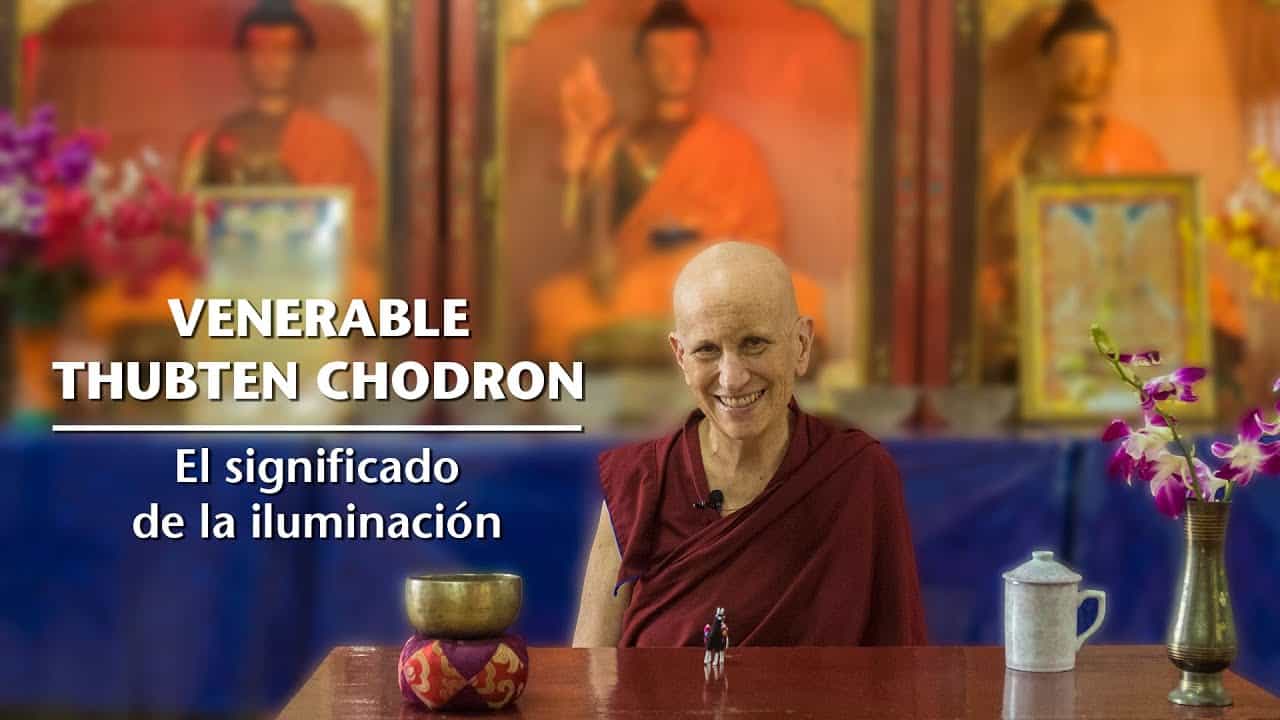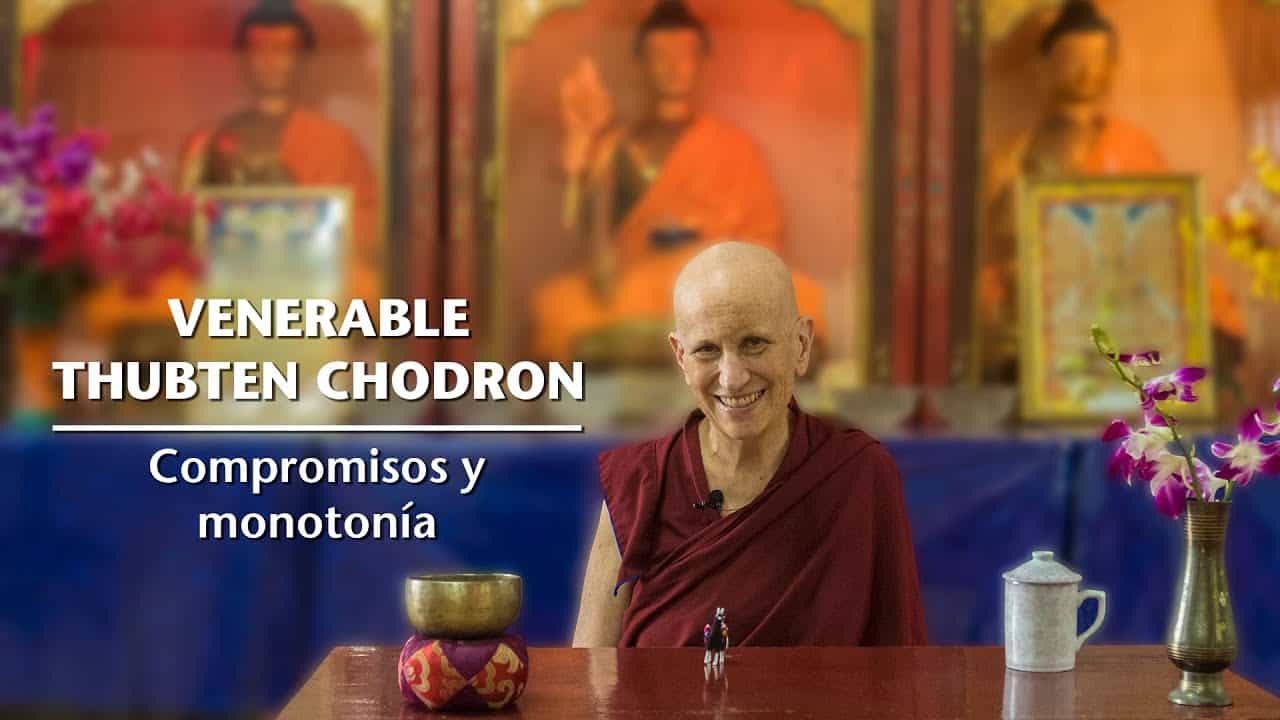Happiness through renunciation
A series of talks given at Tushita Meditation Centre in Dharamsala, India, on August 30, 2018.
- Understanding what we are renouncing
- Clarifying what suffering really is
- Developing good self-esteem and self-confidence
First of all, we have to make sure we understand what we’re renouncing. People often think renunciation means we’re giving up pleasure. So, “Okay I’m renouncing, I give up pleasure, I find my cave in the Himalayas, where it’s freezing cold and, you know, there’s no central heating in my cave, there’s not even a cushion to sit on. I’m eating nettles like Milarepa, but I’m so renounced and I hope all my friends appreciate and know how holy I am for doing this.” Baloney, okay? That’s not renunciation because we want a good reputation. We want some praise out of it. That’s not renunciation.
We’re renouncing dukkha. Dukkha means the unsatisfactory experiences of cyclic existence. That’s what we’re renouncing. It doesn’t mean you give up happiness. We give up suffering, but, of course, our suffering is based on our wrong conceptions and a lot of our wrong conceptions, or many of them, have to do with wrong conceptions about what is happiness and what is the cause of happiness. So we think, sense objects, external things, external people, that those things are the source of our happiness and so “I want this. This can make me happy and this is gonna make me happy, and they’re all mine. I’m not going to give them up.”
Now if you think like that, maybe this gives you a little happiness. It’s like your friends don’t have one that looks like this and you have the sole antique (actually it’s not antique but it looks that way) bell, gong. You can say, “Look what I got when I was in India,” and your friends will all go, “Oohh,” and you go, “Yes.” You know, is that real happiness? Is that real happiness? You have a pretty cup with some water in it, is that real happiness. You have a fantastic boyfriend, a fantastic girlfriend. You have the right music. You have the right job. You have people all around you telling you how wonderful you are. Is that real happiness? We think it is. If everybody tells me I’m wonderful, then maybe I’ll try and believe it, but do we really believe it? If all the people in the world praise us, are we really going to feel good about about ourselves? I don’t think that’s the way to develop good self-esteem. Good self-esteem comes from knowing ourselves, becoming our friend, believing in ourselves so that we don’t depend on other people always giving us nice little compliments and things like that.
The thing is, if we depend on external objects for our happiness, what happens when we don’t have those external objects or we’re not near those people? Then we’re totally miserable. So renunciation is renouncing dukkha. It’s renouncing the mental states, the distorted mental states, that skew the way we cognize and relate to things. We’re renouncing the afflictive mental states that make us do actions that create negative karma and then that karma ripens in our own unhappiness. That’s what we’re renouncing. So you get some pleasure from your bell, but it doesn’t thrill you. You know, all of your friends say, “Wow, where did you get that spectacular cup? That’s stupendous.” You don’t get arrogant, you don’t feel like you’re special. You just say, “Thank you,” and you maintain a state of mind that is more equal, that doesn’t depend so much on other people constantly feeding our ego. Instead, we have a self-confidence that comes from knowing ourselves and knowing that we aren’t perfect, but, we’ve met the Dharma and how fortunate we are. So we’re practicing and we’re going step by step and we’re satisfied with that.
Venerable Thubten Chodron
Venerable Chodron emphasizes the practical application of Buddha’s teachings in our daily lives and is especially skilled at explaining them in ways easily understood and practiced by Westerners. She is well known for her warm, humorous, and lucid teachings. She was ordained as a Buddhist nun in 1977 by Kyabje Ling Rinpoche in Dharamsala, India, and in 1986 she received bhikshuni (full) ordination in Taiwan. Read her full bio.


